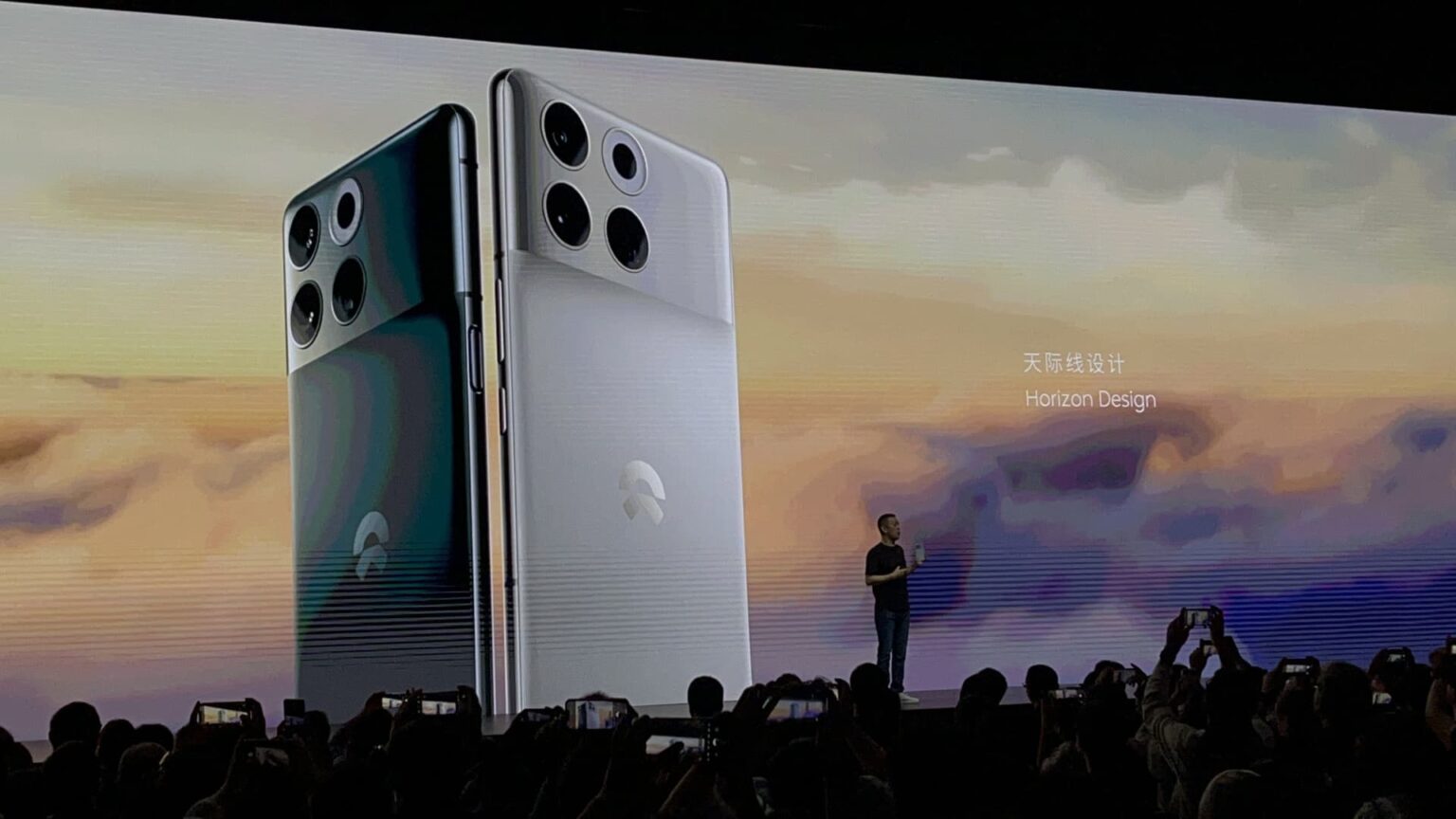SHANGHAI — Chinese electric car brand Nio on Thursday released an Android smartphone, which the company expects at least half its users to buy, CEO William Li told CNBC in an exclusive interview ahead of the launch.
The phone, priced from around $900 to $1,000, is an Android device that’s about $150 cheaper versus a comparable Huawei phone, Li said in Mandarin.
He told CNBC that among Nio users from which the company makes a profit, more than half are iPhone users, while the other half uses flagship Android phones from Huawei and other brands.
“I believe this portion of users are very likely to use this new form [of device] when they are changing their phones,” Li said according to a CNBC translation, citing the phone’s overall performance and car connectivity.
Nio is the first high-end Chinese electric car brand to release its own smartphone, which Li said the company developed in about a year. Electric car companies in China have sought to make in-car entertainment and mobile phone connectivity a selling point for their vehicles.
Delivery starts on Sept. 28, with orders starting immediately.
Nio shares
Swedish electric car maker Polestar, which counts China as a major market, told CNBC earlier this month it plans to launch a phone in December.
Smartphone companies Apple and Xiaomi have long been reportedly working on their own cars.
Less than two years ago, Huawei released the Aito brand, which sells electric cars in China that are integrated with the smartphone company’s operating system. Huawei also sells its in-car software to other electric car companies such as Avatr and BAIC’s Arcfox.
That connectivity allows drivers to sync their personal device settings — such as for music — with the car. Nio also has a standalone mobile app.
A smartphone for cars
While the new Nio device resembles a typical smartphone, it comes with a special button that acts as a key for the car, Li told CNBC on Wednesday.
The Nio smartphone also allows users to connect more seamlessly with the car, such as when transitioning between the phone and the vehicle during online meetings, he said.
What we are pursuing is the car experience and the emotional experience we can provide to our users.
The new device is an opportunity for Nio to make more money per user.
“We pay more attention to the value that each user brings to our entire brand, and it is more convenient to connect users. It is also more efficient than before,” Li said. “What we are pursuing is the car experience and the emotional experience we can provide to our users.”
The phone is available to all consumers in China, not just those who own Nio cars, Li added.
He pointed out that the Nio phone app has 600,000 active users a day, about 1.5-times the number of car users.
Nio’s monthly deliveries rose to around 20,000 in August and July, after a decline in delivery volume the prior three months.
In the second quarter ended June 30, Nio reported that revenue from the “other sales” category was mainly driven by a boost in the sales of used cars, accessories and power services, which more than doubled from a year ago to 1.59 billion yuan ($217.86 million) despite a decline in total revenue.
The company attributed the year-on-year and quarter-on-quarter increase in other sales to “continued growth of our users.”
Europe market
However, Nio doesn’t have plans to release the smartphone in Europe — at least not until the market grows larger, Li said.
Nio is in five countries in Europe, including Germany, and the company needs time to focus on developing local car services, Li said, noting those are important for auto products.
When asked about the European Union’s anti-subsidy probe into Chinese EVs, Li said the company was still learning the details.
We believe time is still on Nio’s side.
It’s more important for the world to cooperate, especially on addressing climate issues, he added.
“I don’t think anyone should block users from using good products through multiple ways” such as investigations, he said.
Investing for the future
In China, the penetration of new energy vehicles has expanded quickly, but an overall slowdown in economic growth has weighed on the market.
Competition in the domestic electric car market is “fierce,” Li said, noting challenges for industry peers as well.
But he expects business investments will help Nio create barriers to entry. “We believe time is still on Nio’s side,” Li said.
He noted the company spends about $500 million on research and development every quarter. Other major areas of investment for the company, he said, are battery charging and development of a mass market brand.
Nio previously said it plans to release a vehicle in the second half of next year under the mass market brand “Alps.”
The company has faced financing challenges more than once since its founding in late 2014. Earlier this year, Nio said it was delaying some spending plans due to lackluster deliveries.
But the company subsequently received nearly $740 million from an Abu Dhabi-backed fund. Nio also announced this week a refinancing plan for a portion of its debt.
Read the full article here










